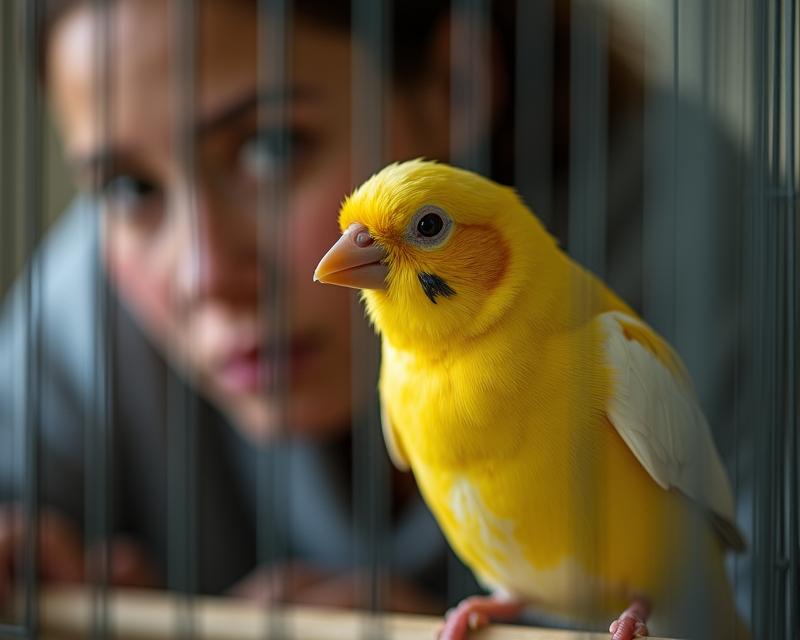Canary Vomiting? What Could It Mean?
Publish in Health el 28/06/2025 18:45
Why is My Canary Vomiting?
Seeing your little canary vomit can be alarming! It's definitely something to pay attention to, as it could indicate a variety of issues. While occasional, harmless regurgitation can happen, frequent or persistent vomiting warrants investigation. Don't panic, though! Often, the cause is easily addressed.

Possible Causes of Vomiting
There are several reasons why your canary might be bringing up food. Sometimes, it's simply eating too quickly! Canaries have a tendency to gulp down their seeds, and if they do this, it can lead to regurgitation. Another common cause is eating something they shouldn't have – a bit of a forbidden treat, a plant leaf, or even something found in the laundry room! Also, changes in diet can upset their tummy. Sudden switches in seed mixes or introducing new fruits or vegetables can cause digestive upset.
What to Do If Your Canary Vomits
First, observe your canary closely. How often is it happening? What does the vomit look like? Is it just food, or is there any unusual color or consistency? If it's a one-time occurrence and your canary seems otherwise healthy – active, eating, and chirping – you can usually monitor the situation. However, if the vomiting continues for more than a day or two, or if you notice any of the following, it's time to see a vet:
- Lethargy (lack of energy)
- Loss of appetite
- Changes in droppings (diarrhea or constipation)
- Cloudy droppings
- Difficulty breathing
Preventing Future Vomiting
Here are a few things you can do to help prevent your canary from vomiting:
- Offer a varied diet: Provide a mix of seeds, fresh fruits, and vegetables.
- Feed smaller portions: Offer smaller meals more frequently throughout the day.
- Avoid sudden diet changes: Introduce new foods gradually.
- Keep the cage clean: A clean cage reduces the risk of bacterial or fungal infections.
- Supervise your canary: Make sure they aren't nibbling on anything they shouldn't! Especially important if they have access to the laundry room.
Your canary's health is important, and addressing vomiting promptly can help ensure a long and happy life for your feathered friend. If you're ever concerned, don't hesitate to contact an avian veterinarian.





